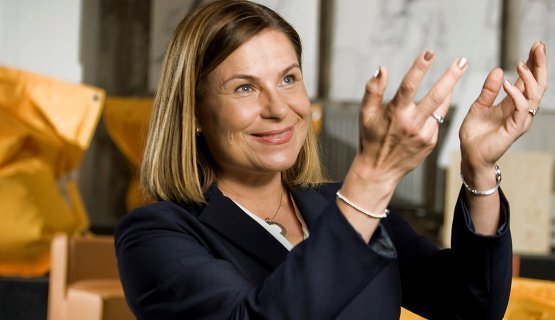Tuula Antola, Director of Economic and Urban Development for the City of Espoo, is sitting in a taxi heading to Helsinki Airport. She is taking a direct afternoon flight to Shanghai. Helsinki and the entire metropolitan region take pride in the excellent Asian connections.
Espoo is home to Aalto University. The city has just under 300,000 inhabitants and is part of the metropolitan region surrounding capital city Helsinki. Espoo and Shanghai have been sister cities for twenty years. According to Antola, these days the longstanding relationship is evident in many walks of life and is increasingly close. “Every senior high school in Helsinki has a sister school in Shanghai. We engage in student exchanges a great deal.”
Helsinki and the entire metropolitan region take pride in the excellent Asian connections.”
It is a question of networking among cities, which has clear advantages, offering a way to get to know each other and bounce ideas, cultures, and thinking. Finnish cities have had sister cities in China for a lengthy period of time, and recently activities have become deeper, moving from merely exchanging flags and compliments to practical measures. Determined efforts have been made to build contacts between universities in Espoo and Shanghai. Aalto University collaborates with Tongji University in Shanghai. If you visit Tongji Design Factory, you will most certainly bump into Finnish students from Aalto University. If you are extra lucky, you may even get a chance to take a sauna in the city, as a result of Finnish-Chinese cooperation. When people meet, new things happen: innovation, insight, understanding, cooperation, marriage.
In networks, physical distances become blurred and moving to another city becomes easier, as there are already people one knows. Being part of a network is one way to attract talent. A third of Chinese people in Finland live in Espoo. Tuula Antola mentions that the city is eager to promote contacts between the two cities both ways: by offering a good home to Chinese people, while supporting Finns who want to enter the Chinese market. Inter-city activities come naturally for the Chinese, as in a country the size of China, a great deal takes place on city level. Contacts in cities are important when doing business.
In networks, physical distances become blurred and moving to another city becomes easier.”
Antola adds that recent years have brought major changes to the public sector’s role towards entrepreneurship and, as a result, to attracting talent. According to her, a city is an enabler. Her work entails meeting with directors of game companies, visiting accelerators, and understanding the work life needs of a new generation. It goes without saying that the city wants to attract global talent.
“It is vital that top talents want to come here and find it easy to start working”, says Antola. The city is dismantling hindrances that have previously been blocking the way of talents: it wants to get rid of unnecessary bureaucracy around visas and permissions and promote Finnish working culture: “We have a culture of working together, low in hierarchy, which we need to be proud of. Being small is also a strength: you learn to know people in your field in a matter of a few weeks. It’s safe and peaceful, and the level of expertise is at the top of the game in many sectors thanks to our high standard of education.”
It is vital that top talents want to come here and find it easy to start working”
Marketing efforts aim to crystallize the image and story of Espoo. Without marketing, people outside Finland may have a dated or non-existent view of Helsinki, Espoo or Finland.
We have chatted on the phone for nearly an hour, and Antola is already at the airport. She recalls what happened back in 2012 when she was on the 98th floor of a skyscraper in Shanghai with Mayor of Espoo Jukka Mäkelä. Suddenly the phones of both of Antola and Mäkelä began to ring. The news were bad: Nokia was to begin major layoffs in Espoo. Both at the helm of Espoo, the two pondered whether they should head back immediately, but decided to see their business trip through. “We felt we were exactly in the right place, a skyscraper in Shanghai, where we could see all that could be possible.”
This story is part of Talents City article series, read the long form How to Attract Talents.













